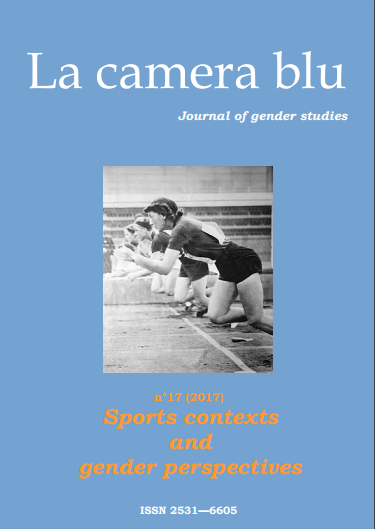«Arrivederci a Tokyo». Ondina Valla e lo sport femminile durante il fascismo
DOI:
https://doi.org/10.6092/1827-9198/5392Keywords:
history of sports, sports during the fascist dictatorship, Italian society during the fascist dictatorship, Ondina Valla, women’s historyAbstract
During the fascist dictatorship, the women’s participation in sport activities was in contrast with for the model of woman as “angelo del focoloare” and mother of soldiers. An evidence is given by the non-participation of Italian female athletes at the 1932 Olympic Games. Fascism, however, paid great attention to sport, exploiting it for both education of masses and propaganda. In such a way Mussolini’s regime launched a model which later would have been used by a number of dictators (think to the Nazi Germany, to the communist regimes during the Cold War, to the Latin-American dictatorships). The story of Ondina Valla – winner of the 80 metres hurdles race at the 1936 Olympic Games - en-compasses this contradiction, because on the one hand the government wanted to use her successes for political purpose; on the other hand, she was a figure which did not reflect the conception of the ideal woman endorsed by fascist ideology. The 1936 Olympic victory contributed, at least in part, to change the perception of women’s sport and, more in general, of the women’s role in society by the public opinion.Downloads
Download data is not yet available.
Downloads
Published
2017-12-31
How to Cite
D’Angelo, G., & Fonzo, E. (2017). «Arrivederci a Tokyo». Ondina Valla e lo sport femminile durante il fascismo. La Camera Blu, (17). https://doi.org/10.6092/1827-9198/5392
Issue
Section
Research Workshop
License
La camera blu is an open access, online publication, with licence CCPL Creative Commons Attribution 3.0 Unported


